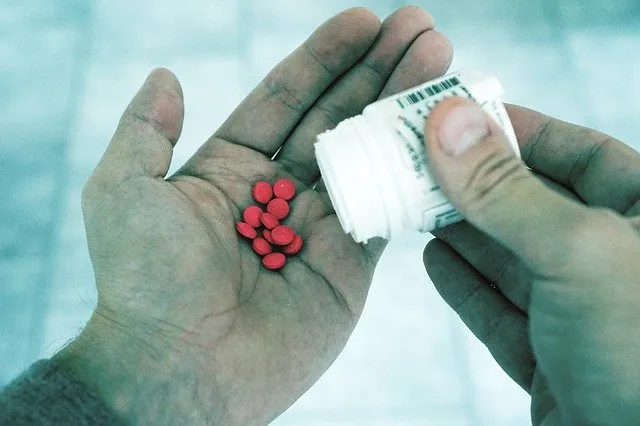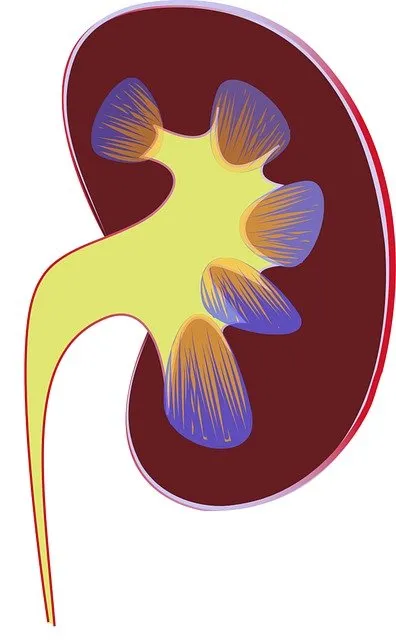Introduction

There is great importance in educating Steem about the dangers of taking over-the-counter medications. One thing is for sure—just because something does not require a prescription, does not make it safe! Non-Steroidal Anti-Inflammatory Drugs (NSAIDs) such as ibuprofen are common medications that decrease inflammation by stopping prostaglandin synthesis. This can be a great way to decrease pain, inflammation, and reduce fever when used in moderation, but there are those who should not take them... and almost any person can be in a situation where it would be foolish to do so!
While many people know that NSAIDs like ibuprofen and naproxen can be hard on the stomach and cause ulcers, many common folk are not familiar with the danger to the kidneys! I will be discussing the mechanism of action on how NSAIDs can damage the kidney in multiple ways and give situations where any person could be in danger. Stomach issues and ulcers are another major problem with NSAIDs, but I will be sticking to the kidneys for this post!
Types of Acute Kidney Injury (AKI):

Acute kidney injury (AKI) is essentially a rapid decline in kidney function. This can be checked fairly easily by looking at the creatinine level in the blood. Creatinine is mostly removed by the kidney, so when the level is elevated, it means that the kidney cannot remove it well. We have many ways to figure out which type of damage occurs, but I will not bore you with those details in this article.
AKI is not uncommon, and I see it in many patients at the hospital. 577 out of 100,000 people will get AKI and LESS THAN HALF of these people had previous kidney disease (1). This is an important point because it does happens in people that had good function before the acute problem.
I also suspect that AKI is much more common than this because most kidney damage does not cause symptoms! You don’t “feel” kidney injury because it does not hurt. The only time one will will “feel” the effects of kidney damage is when one has no kidney function and needs dialysis. We find kidney injury because someone comes in with another problem. An older lady with pneumonia may also have AKI!
We categorize acute kidney problems into three general types: pre-renal, intrinsic, and post-renal. Pre-renal is damage to the kidney due to poor blood circulation. Intrinsic is when there is damage within the kidney itself; these two types are what can happen while taking NSAIDs. Post-renal is when damage occurs beyond the kidney. For example, a man with an enlarged prostate can have problems with urine clearance. This build up of urine can increase fluid around the kidney, increasing pressure, and causing damage.
I could dedicate multiple posts for each of these types (especially intrinsic), but to stick with the NSAID topic, let’s move on!
Mechanism of Action of NSAIDs

NSAIDs like Advil and Aleve work by inhibiting COX-1 and COX-2, which therefore, block prostaglandin synthesis. COX-2 inhibition leads to decreased inflammation, pain, and fever. These are the positive effects of taking NSAIDs. However, COX-1 and COX-2 both affect the kidney (2). This is important! Although COX-1 inhibition is believed to lead to ulcers in the stomach, both cause negative effects in the kidney. Therefore, drugs like Celebrex ( selective COX-2 inhibitors) while better on the stomach, will not lead to absolute renal protection.
Prostaglandins have a major benefit in the kidney. One major prostaglandin in the kidney is prostacyclin (2). Prostaglandins in the kidney cause vasodilation of the afferent tubule (WHAT is he talking about????).
Don’t panic!
To understand this, I will give a brief anatomy lesson. The kidney has an afferent tubule leading to the glomerulus (the main filtration structure of the kidney). When the blood moves past this filtration structure, it goes out the efferent tubule and exits. The kidney benefits by having more blood flow entering the glomerulus. Therefore, prostaglandins are beneficial to the kidney. When an NSAID is taken, these prostaglandins are synthesized less and there is more afferent vasoconstriction, leading to poorer blood flow to the glomerulus of the kidney.

A double-blinded study on 29 healthy subjects found that taking naproxen (Aleve) 500mg twice a day for 10 days had statistically significant reductions in kidney function compared to placebo (2). While these changes may have been transient, repeated attacks on the kidney can lead to permanent damage, "AKA" chronic kidney disease.
The problem mentioned above is a hemodynamic, pre-renal issue. It is simply lack of blood flow to the kidney, which can be caused by NSIAD use.
Another potential risk to the kidney while taking NSAIDs is acute interstitial nephritis (AIN). As of now, we are not certain why NSAIDs cause this, but it is believed to be immune mediated. One potential theory is that COX-inhibition leads to more leukotrienes, leading to more activation of white blood cells (specifically helper T-cells) (3).
It is also important to note that acute tubular necrosis (ATN) can occur with NSAIDs from ischemia (pre-renal disease turning into intrinsic disease). If there is not enough blood flow to the kidney, then intrinsic damage can occur from poor oxygenation to the renal tubules.
Who Should NOT take NSAIDs?
Now that the dangers are clear, who should be cautious?
Well, in my opinion, everyone should be cautious; however, many can still take NSAIDs safely. People who already have kidney disease should not take it. It puts the kidney in a vulnerable position, and someone with already poorer kidney function is not a good candidate. Beyond the kidney, people who get stomach ulcers should also avoid oral forms of NSAIDs.
This may seem easy to manage, but it is not. An older individual with arthritis and kidney disease makes decision making hard. For instance, this individual may be in pain but opiates and NSAIDs are not good options. Tylenol is not an NSAID, but is often not great at treating significant pain.
People without kidney disease should also be careful. For example, let’s say that a 52-year old who takes a diuretic ( like HCTZ) and Lisinopril (ACE-inhibitor) for high blood pressure also wants to take an over-the-counter NSAID for arthritis. This individual can take an Aleve but should exercise great caution! ACE-inhibitors are vasodilators of the efferent (opposite effect to the afferent tubule which also causes pooper perfusion). If this individual becomes dehydrated with the diuretic, then acute kidney injury could occur. I would advise this patient to be very well hydrated while taking the NSAID.
A Time When All Steemians Should Avoid NSAIDs
What other diuretics do we know of…..ALCOHOL.

Alcohol makes you “pee” a lot. Let’s say that a beautiful Steem woman goes out for a night of festivities. She becomes inebriated and returns home and passes out. Before she passes out, she decides to take a lot of NSAIDs to “prevent a hangover” in the morning. She wakes up the next day super-dehydrated. She drinks some water and feels better. She may have an acute kidney injury and never know it. It may resolve, and her kidneys may work fine after. However, with every AKI event, there is a chance of permanent kidney damage! Not a risk I would want to take. It makes you wonder if alcohol could be a cause of some idiopathic cases of chronic kidney disease. Just a thought. Diabetes and HTN are the main two leading to chronic kidney disease, but acute kidney injury can lead to permanent renal dysfunction.
Conclusion/Recommendations:

I hope this was an informative post for the Steem community. I still think NSAIDs can be very beneficial when used in the right context with the right people. It is also important to not “overuse” these drugs because they are not harmless. They can cause serious problems. My recommendation for a healthy Steemian is to take no more than is recommended on the package, avoid chronic use of them, and do not take them when dehydrated. If you are drinking alcohol, don’t even think about it! Those that have kidney disease, don’t take them.
If you have back pain and are healthy/hydrated go ahead and take them!
Just because you can buy something at a store, does not make it harmless! I highly doubt NSAIDs would have been approved by the FDA if they were made in this day and age.
Thank you for reading my important post on NSAIDs, and I hope everyone learned something new!!!
Stay tuned for more posts on medicine/science/music.
Hope everyone had a great weekend!!!!

Current senior medical student in my last 2 months of school!
Sources (cited within article as well):
1) http://emedicine.medscape.com/article/243492-overview#a6
2) http://www.medscape.org/viewarticle/422939_3
3) http://medsafe.govt.nz/profs/PUArticles/June2013NSAIDS.htm
***Edit) Source (2) link is not allowing access without an account. However, the article can be found by going to google and typing in....NSAIDs Cardio-Renal Physiology Medscape
All images from pixabay.com. Links provided under photos.